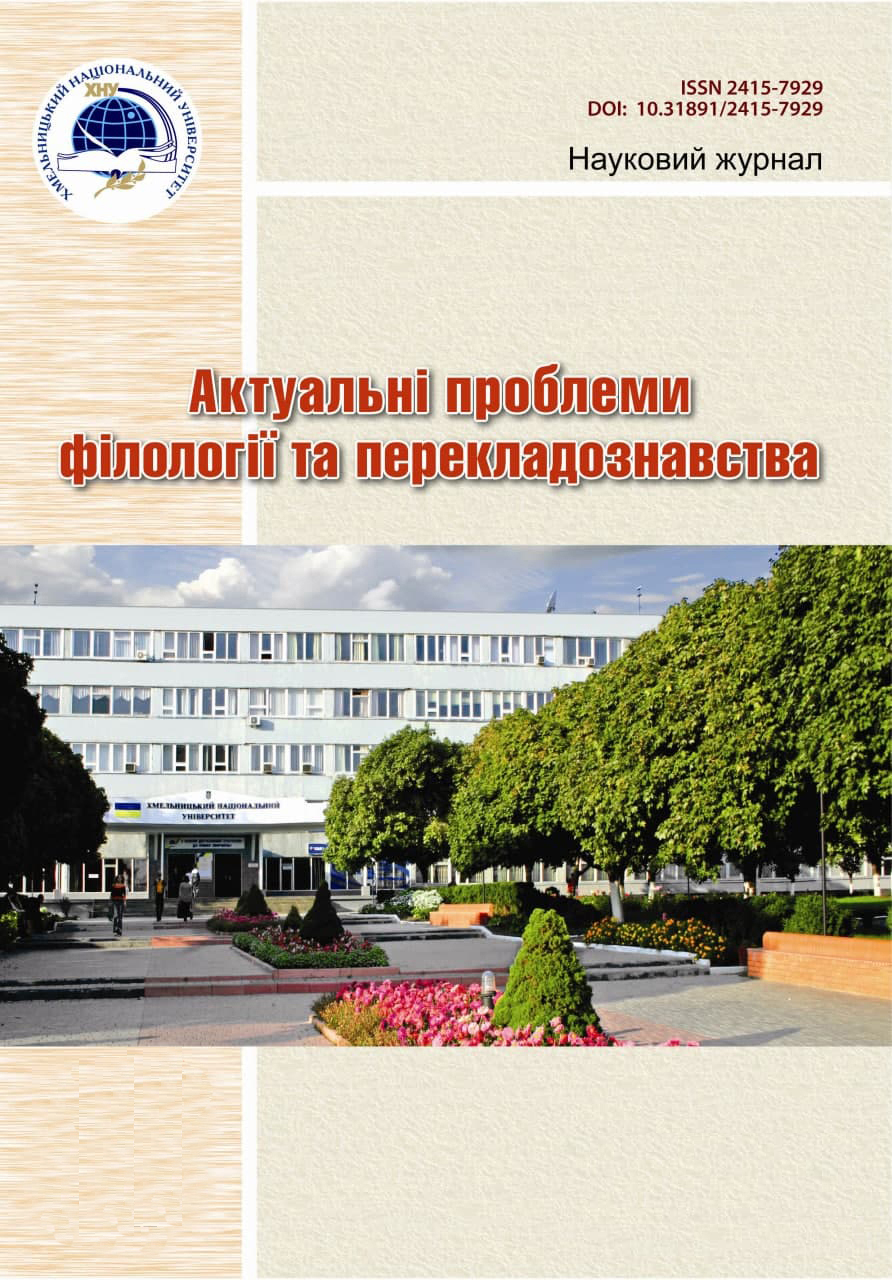LINGUISTIC MEANS OF EXPRESSING ETHOS IN ENGLISH COURT DISCOURSE
DOI:
https://doi.org/10.31891/2415-7929-2020-20-13Keywords:
ethos, court discourse, defense lawyer` speech, prosecutor`s speech, thematic group, discursive practice, court communicative cultureAbstract
The paper is devoted to the study of speech communication as a special kind of activity aimed at shaping opinions and beliefs. All these tendencies can also be applied to court speeches, by means of which the prosecutor and the defense lawyer seek to influence the judge and the jury in order to convince them of the desired understanding of the problem, as well as to force them to act. In this context, the phenomenon of ethos, which is seen as a system of ideals and values at the level of mental attitude, life patterns, social habits and values that dominate the culture and control the behaviour of its members, has been researched in the article. The author reveals the ways of language representation of ethos in English court discourse, which makes a certain contribution to understanding the mechanisms of speech impact in court, as there are not enough studies, where ethos is analysed from the linguistic point of view.
It has been established that in contemporary court discourse the appeal to religious ethos is becoming less and less applicable. At the beginning of the twenty-first century, appeals to democratic rights and freedoms as a system of ideals and values immutable for American society or appeals to universal values are increasingly used. The prosecution seeks to create an effect of empathy for the plaintiff and to create an effect of rejection for the accused, so it bases itself on an ethical norm or anti-norm, respectively. The defense lawyer also appeals to ethos, as does the prosecution, but the defense lawyer chooses a different context for these thematic groups. The paper identifies the relevant thematic groups: with the common themes of «civic virtues», «rule of law» and «universal values». It has been revealed that the appeal to ethos is mandatory in both the discursive practice of the prosecutor and the discursive practice of the defense lawyer, due to their being within the canon and their duty to maintain a court communicative culture.
Downloads
Published
Issue
Section
License
Copyright (c) 2020 М. ЗАЙЦЦЕВА (Автор)

This work is licensed under a Creative Commons Attribution 4.0 International License.

